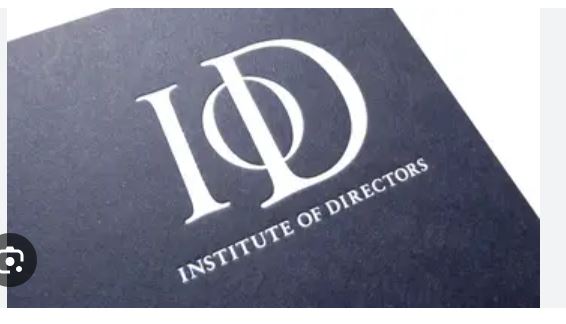The Chartered Institute of Directors of Nigeria (CloD) has underscored the critical importance of effective public sector governance as Nigeria confronts the various challenges of the 21st century. At the 2024 Fellows’ Investiture held in Lagos, Tijjani Borodo, the President and Chairman of CloD, articulated that the efficacy of public governance is vital for ensuring sustainable economic growth, fostering social development, and securing national prosperity. Borodo emphasized that a well-governed public sector serves as the bedrock of these vital components, asserting that such governance is not only necessary but essential for navigating the complexities that lie ahead for Nigeria.
In his address, Borodo also pointed out the long-overdue necessity for a public sector governance code that would facilitate adherence to global best practices. He expressed the institute’s commitment to fostering guidelines that will enhance public sector governance in Nigeria, creating an environment conducive to effective management and accountability. The introduction of this governance code is seen as a pivotal step in supporting officials and institutions in their roles to ensure transparency, integrity, and ethical behavior in public dealings. Borodo’s assertion indicates a proactive approach in addressing flaws within the current governance framework and aiming to elevate standards across the public sector.
Furthermore, Borodo encouraged members of the CloD to seize this pivotal moment as an occasion to renew their dedication to excellence, integrity, and good governance. He framed the ceremony as not just a celebration of individual accomplishments but as a collective affirmation of the professional standards and ethical practices that the institute stands for. By calling on the members to embody the highest standards of professionalism and accountability, Borodo positioned the CloD as a leader in promoting integrity within both public and private sectors, highlighting the significance of unity in advancing governance ideals.
Echoing Borodo’s sentiments, the guest speaker, Dr. Rabiu Olowo, who is the Executive Secretary and Chief Executive Officer of the Financial Reporting Council of Nigeria, examined the foundational role of the public sector in national development. He articulated that public institutions serve as critical engines for the formulation of policies, decision-making, and resource management. Olowo warned that Nigeria’s journey toward meeting its developmental aspirations hinges significantly on the efficacy of these institutions, suggesting that stagnation or regression is a potential risk if governance is not addressed.
Moreover, Olowo underscored the relevance of the proposed public sector governance code, positing that it would encourage ethical leadership practices among governing bodies. By establishing a framework that promotes a culture of ethics, effective performance, and legitimacy within public institutions, the code aims to improve governance structures. His remarks highlight how such a governance code would ensure the responsible handling of public responsibilities, ultimately ensuring that the government can effectively serve its citizens and maintain public trust.
In conclusion, both Borodo and Olowo provided a clarion call for strong public sector governance in Nigeria, articulating that its effectiveness is paramount for the country’s future. Their emphasis on the need for a governance code and the sustained commitment of CIoD members to uphold high standards of ethics and accountability reflects a shared vision for Nigeria’s development. The discussions at the event highlighted the essential nature of public sector governance as an indicator of national progress and the responsibility of individual members to contribute positively towards achieving this goal. By harnessing collective efforts for good governance, Nigeria can aim to overcome current challenges and chart a course toward resilience and prosperity in the 21st century.














